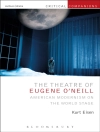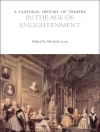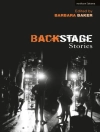In 1928, Hilton Edwards and Micheál mac Liammóir founded the Dublin Gate Theatre, which quickly became renowned for producing stylistically and dramaturgically innovative plays in a uniquely avant-garde setting. While the Gate’s lasting importance to the history of Irish theater is generally attributed to its introduction of experimental foreign drama to Ireland, Van den Beuken shines a light on the Gate’s productions of several new Irish playwrights, such as Denis Johnston, Mary Manning, David Sears, Robert Collis, and Edward and Christine Longford. Having grown up during an era of political turmoil and bloodshed that led to the creation of an independent yet in many ways bitterly divided Ireland, these dramatists chose to align themselves with an avant-garde theater that explicitly sought to establish Dublin as a modern European capital. In examining an extensive corpus of archival resources, Van den Beuken reveals how the Gate Theatre became a site of avant-garde nationalism during Ireland’s tumultuous first post-independence decades.
A propos de l’auteur
Ruud van den Beuken is assistant professor of English literature at Radboud University in the Netherlands. He was awarded the 2015 Irish Society for Theatre Research New Scholars’ Prize.












